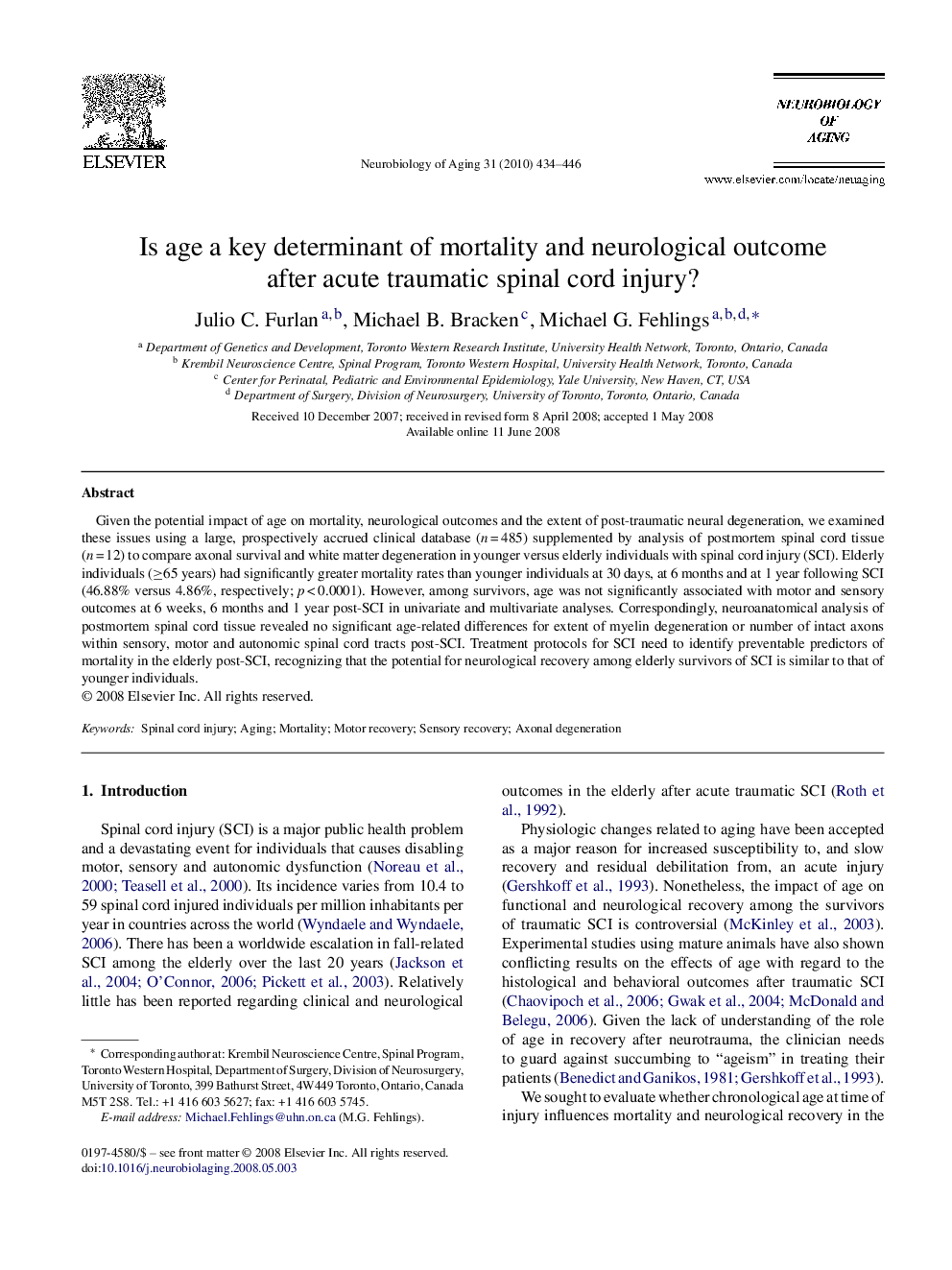| Article ID | Journal | Published Year | Pages | File Type |
|---|---|---|---|---|
| 331132 | Neurobiology of Aging | 2010 | 13 Pages |
Given the potential impact of age on mortality, neurological outcomes and the extent of post-traumatic neural degeneration, we examined these issues using a large, prospectively accrued clinical database (n = 485) supplemented by analysis of postmortem spinal cord tissue (n = 12) to compare axonal survival and white matter degeneration in younger versus elderly individuals with spinal cord injury (SCI). Elderly individuals (≥65 years) had significantly greater mortality rates than younger individuals at 30 days, at 6 months and at 1 year following SCI (46.88% versus 4.86%, respectively; p < 0.0001). However, among survivors, age was not significantly associated with motor and sensory outcomes at 6 weeks, 6 months and 1 year post-SCI in univariate and multivariate analyses. Correspondingly, neuroanatomical analysis of postmortem spinal cord tissue revealed no significant age-related differences for extent of myelin degeneration or number of intact axons within sensory, motor and autonomic spinal cord tracts post-SCI. Treatment protocols for SCI need to identify preventable predictors of mortality in the elderly post-SCI, recognizing that the potential for neurological recovery among elderly survivors of SCI is similar to that of younger individuals.
